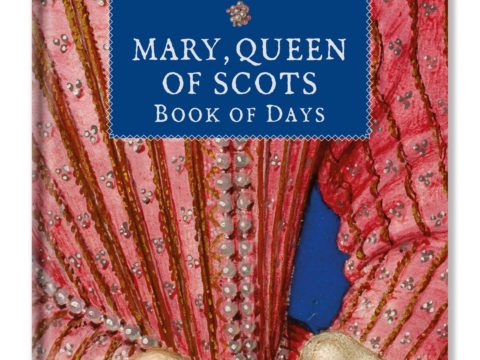Anne of Cleves: Life Story
Chapter 7 : Annulment
Lord Chancellor Audley, busy distancing himself from his erstwhile colleague, Cromwell, visited Anne, alongside Bishop Gardiner. Their goal was to press her into an admission that her marriage had not been consummated. Upset, confused and fearful, Anne kept her wits about and declined to answer, sending once again for Harst, but Gardiner and Audley wormed information out of Anne’s ladies, this being the source of the discussion mentioned above, in which Anne claimed to think that a kiss goodnight was sufficient to complete a marriage.
Harst was not afraid to defend his charge. He confronted the council, complaining that Anne had been interrogated without any support, and demanding to know if it was customary for a lady of high birth to be discarded so cavalierly. He claimed to believe that Henry could have had no knowledge of the insult offered to his wife. Anne, of course, although she had not long been married, had no doubt that Henry was behind the investigations, and that his objective was an annulment to enable him to marry Katheryn Howard.
Even while Harst was dashing about London, seeking to have the whole matter closed down, Henry’s clergy were looking into the validity of the marriage. Only a day after the case was put into the hands of a panel of clergy. Gardiner, eager to see the back of a queen who was seen as a link to Lutherans, made Henry’s case, and to the surprise of nobody, the assembled clergy solemnly confirmed that the king and Anne were ‘in no wise bound by the marriage solemnised between them’. Since no-one had appeared for Anne, and no arguments in favour of the marriage were heard, the matter can hardly have been said to have been fully aired, but it was a fait accompli, probably before Anne even knew the hearing had taken place.
The annulment was granted on three grounds: the pre-contract between Anne and Francis of Lorraine; Henry’s lack of consent to the marriage, and its non-consummation. Both were declared free to remarry – somewhat negating the first ground.
By the time Henry’s commissioners arrived to inform Anne of the annulment on 11th July, she had been forewarned by Harst and had taken the decision that there was nothing she could do to prevent Henry getting his way – she did not have the personal or political reasons for wanting to hold onto the marriage that Katharine of Aragon had had, and nor could her brother’s support, if it were forthcoming, be compared with that that Katharine had received from Charles V.
Anne greeted the messengers politely and they reported that she accepted the news calmly, ‘without alteration of countenance’. She confirmed that she was ready to accept Henry’s decree in this, as in everything else. A report that she fainted on beholding the delegation dates to some seventy years later.
It is a moot point whether Anne were more upset or relieved by her situation. Initially, she was terrified that failure to give Henry what he wanted might lead to her and her friends meeting the fate of Anne Boleyn, or even the long and miserable exile of Katharine of Aragon. Nevertheless, she certainly did not think her marriage invalid and had prized her position as queen. Conversely, once assured of Henry’s goodwill toward her, she cannot help but have been relieved at the thought of no longer having to endure his attempts at consummation.
She signed the documents presented to her, in front of a long list of witnesses, including Henry’s brother-in-law, Charles, Duke of Suffolk, the Earl of Southampton who was Lord Privy Seal, Sir Richard Rich and Sir Thomas Wriothesley. From her own household, the witnesses were the Earl and Countess of Rutland, Lady Rochford, Lady Edgcombe, Dorothy Wingfield, Anne Josselyn and Elizabeth Rastell.
She sat down to write Henry a letter. Presumably, she dictated in German, and her secretary wrote it in English, so we cannot be certain that whoever the scribe was, he did not amend it to sound more gratifying to Henry’s ears.
The letter opens with Anne lamenting her loss – her love of his ‘most noble person’ being so great. Nevertheless, the competent clergy having found that their union was not valid, she had no thought other than of accepting their decree and placing herself in his hands entirely. She did hope that, although she could no longer hold or repute herself his wife, from time to time he might bestow on her the ‘fruition of [his] most noble presence’. It is certainly hard to imagine that her English had developed to the point of delivering such fulsome flattery. She was also, she said, much comforted by the news that Henry intended to treat her as his sister. She tactfully closed the letter with a new signature – instead of Anne the Queen, she signed herself as 'Anne, the daughter of Cleves’, a self-identification that no-one could take amiss.
Henry, no doubt relieved that Anne was going to go quietly, was grateful. He sent her a polite letter, confirming that he would ‘repute (her) her as (his) dearest sister’, and that he would give her an annual income of some £4,000 – a very tidy income indeed. She would have the use of the royal houses at Richmond – an important property, built around the turn of the century by Henry VII - and Bletchingley, in Surrey.
These properties were both close enough, Henry continued, for him to be able to grant her wish of visiting his court, just as he would visit her. In fact, so eager was he to confirm their happy friendship, that as soon as Parliament had been prorogued, he would ‘see and speak to’ her. In the meantime, she was exhorted to be ‘quiet and merry.’
Anne of Cleves
Family Tree
